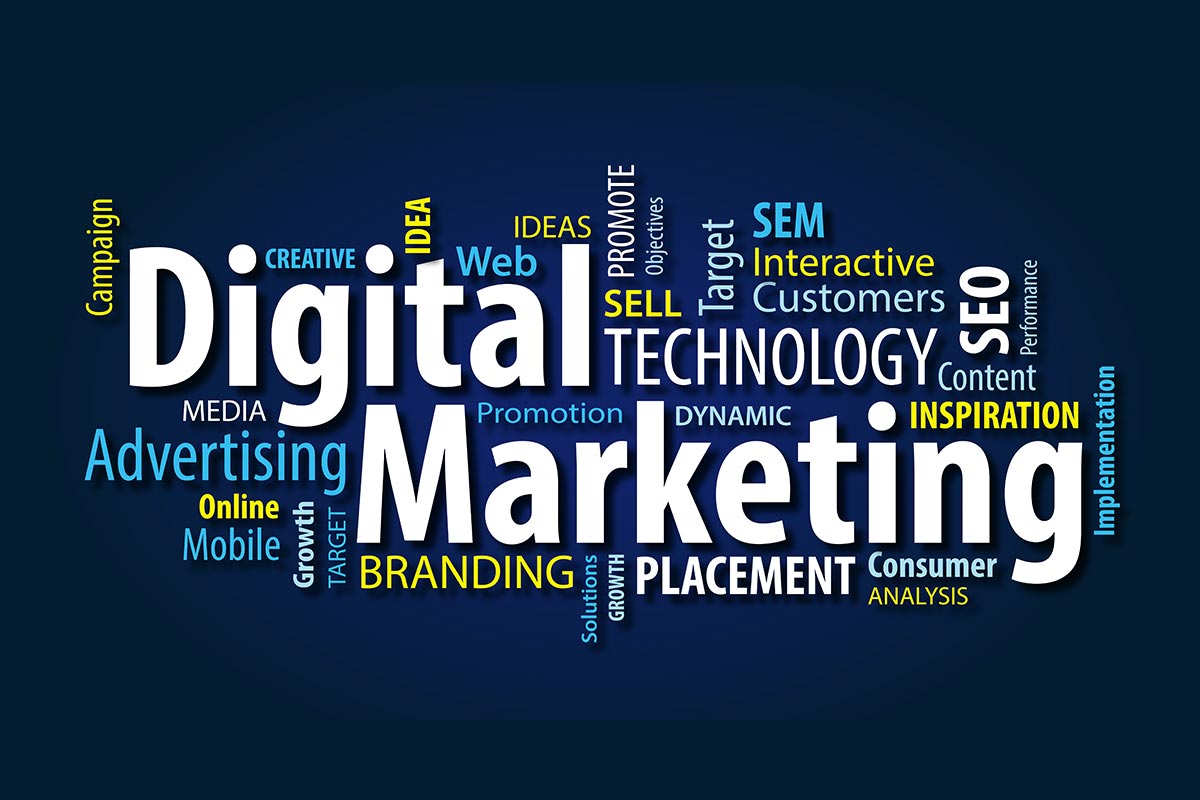Emerging Trends in Digital Marketing: What's Next in the World of Lead Generation?

The environment for digital marketing is always evolving. The way organizations create leads and nurture prospects is changing every year as a result of new technologies, consumer behaviors, and market dynamics. It's essential to keep an eye on new trends if you want to stay ahead of the game. This article will examine the newest development in lead generation. These trends promise to transform how companies interact with potential clients, opening up new chances for expansion, engagement, and conversion.
AI-Powered Chatbots: Real-Time Engagement
AI-powered chatbots are now more advanced than ever. They are an effective tool for generating leads since they offer quick responses, and individualized advice, and can smoothly lead visitors through the conversion process.
"AI-powered chatbots have developed from basic scripted replies to intelligent conversational agents in recent years. They make use of natural language processing (NLP) to decipher user inquiries and offer insightful answers. These chatbots can arrange appointments, respond to queries, and gather crucial lead information. Real-time interaction with chatbots improves user experience and raises the likelihood that website visitors will become leads." - Jeff Romero, Founder of Octiv Digital
Voice Search Optimization: Voice-Activated Leads
Content optimization for voice search is becoming more significant with the emergence of speech-activated gadgets and virtual assistants. Businesses will have an advantage in generating leads from this expanding group if they customize their SEO strategy for voice queries.
"Users increasingly rely on speech-activated gadgets like smartphones and smart speakers to locate information, make purchases, and engage with digital content, making voice search an essential aspect of daily life. Businesses need to modify their content to fit with conversational questions to capture voice-activated leads. This entails speaking in plain language, responding to direct inquiries, and optimizing for local searches because voice search frequently looks for quick, place-based results".
Video Marketing Dominance
The primary force in digital marketing remains video content. Emerging trends like live streaming, interactive videos, and shoppable content attract audiences and generate leads through compelling narratives.
"Making promotional videos is only one aspect of video marketing; another is presenting engaging stories that connect with your target audience. Live streaming enables in-the-moment interaction with viewers, strengthening their sense of connection to your company. Quizzes and polls in interactive videos stimulate engagement and collect crucial lead data. Shoppable videos let viewers buy things right from the playback, which lowers conversion friction." - Lieu Dang, Marketing Manager, Ling App
Predictive Analytics for Lead Scoring
By utilizing the power of predictive analytics, firms may more precisely identify high-potential leads. This enables more focused and successful lead nurturing efforts.
"Machine learning algorithms are used in predictive analytics to assess previous data and forecast future results. It can assist in identifying leads that are most likely to become customers in the context of lead creation. Predictive analytics assigns lead scores by examining elements such as lead behavior, demographics, and interaction patterns; this enables the sales and marketing teams to focus their efforts. The consequence is a greater conversion rate and more effective lead nurturing." - Timothy Allen, Director at Oberheiden P.C.
Conversational Marketing Platforms
Real-time, one-on-one interactions with prospects are made possible by conversational marketing solutions. These platforms enable fruitful discussions that lead to conversions and collect useful information for future improvement.
"Businesses may interact with prospects in real-time through chat, messaging apps, and even voice assistants thanks to conversational marketing platforms, which are frequently AI-powered. These interactions go beyond mere lead generation; they help customers through the sales process, provide information, and provide tailored recommendations. To maximize the impact of their messaging, firms should modify their tactics for lead nurturing using the information gathered from these interactions." - Cindi Keller, Communications Manager at THE CRIMINAL DEFENSE FIRM
Personalization at Scale
Beyond just including a recipient's name in an email, personalization has advanced. Marketers can deliver highly tailored content and offer at scale thanks to AI and machine learning, which boosts lead engagement and conversion rates.
"Analysis of a huge amount of data is required for scaled personalization to comprehend user preferences and behavior. With this knowledge, organizations can design unique experiences for every lead, sending the appropriate message through the appropriate channel at the appropriate time. Personalization includes product recommendations, website content, email marketing, and more. Leads are more likely to become devoted clients when they are exposed to material that speaks to their wants and interests." - Adam Garcia, Owner of The Stock Dork
Privacy-Centric Marketing
Businesses that prioritize openness and respect for user data will gain customers' trust and create more leads as worries about data privacy grow. Regulations governing data protection must be followed.
"It is impossible to stress how important data privacy is. Businesses that show a dedication to preserving user information will win the trust of their leads in a world where data leaks and misuse are ongoing worries. Leads are more likely to disclose their information and interact with the brand as a result of this trust. Businesses should follow best practices for data collection and storage, acquire explicit consent for data use, and adhere to laws like the GDPR and CCPA to thrive in privacy-centric marketing." - Tiffany Hafler, Marketing Manager at Fortis Medical Billing
Social Commerce Integration
Social media sites are becoming important centers for online shopping. Businesses may tap into engaged audiences and convert them directly on social networks by including social commerce in their lead-generation tactics.
"By combining social media and online shopping, social commerce enables consumers to browse and buy things without ever leaving their preferred social media sites. Businesses may display their goods and services right in customers' social feeds thanks to features like Instagram Shopping and Facebook Marketplace. This frictionless path from discovery to conversion offered by the seamless connection makes it simpler for leads to decide whether to buy while interacting with your company on social media." - Ben Flynn, Manager at Homefield IT
User-Generated Content (UGC)
More than brand content, consumers place more trust in their peers. Lead generation can be dramatically impacted by encouraging user-generated content, such as reviews, testimonials, and social media mentions.
"User-generated content (UGC) is an effective tool for establishing credibility and trust with prospective customers. Prospects are more likely to trust and believe in your company when they see real customers expressing their great experiences. Encourage customers to submit reviews, upload images, and join discussions about your goods or services on social media. Promote UGC on your website and in your marketing materials to positively affect leads' purchasing choices." - Dean Lee, Head of eCommerce at 88Vape
Sustainable and Purpose-Driven Marketing
Customers support brands more and more who share their values. In addition to generating leads, brands that integrate sustainability and social responsibility into their marketing strategies also develop a devoted following of consumers.
"Marketing that is purpose-driven and sustainable goes beyond simply highlighting environmentally beneficial goods. It involves showcasing a dedication to moral standards, environmental stewardship, and social causes. Conscious consumers are drawn to companies that value sustainability and purpose in their marketing. These customers are more likely to become leads as well as devoted brand defenders who support your goals and products." Kevin Wiles, Founder of Shopify SEO Migration
Conclusion
Digital marketing's lead generation industry is quickly changing due to technical breakthroughs, shifting consumer trends, and market dynamics. Keeping up with these new trends can mean the difference between succeeding and struggling in a cutthroat environment.
Businesses should position themselves to create high-quality leads and achieve sustainable growth by implementing data-driven strategies, embracing AI-powered chatbots, optimizing for voice search, using the potential of video marketing, and embracing video marketing. User privacy, social commerce, and authenticity through user-generated content are additional priorities that will foster confidence and increase conversions.
In addition to attracting leads, companies that include sustainability and purpose in their marketing strategies will also build enduring customer loyalty. For those who are willing to embrace these new trends, the future of lead generation is exciting and full of opportunities.
Businesses that remain adaptable, creative, and customer-focused will prosper in the ever-changing lead generation landscape as digital marketing continues to develop. The time has come to get ready for the future of digital marketing so that your company can continue to succeed in lead creation.







